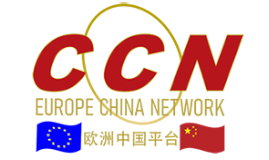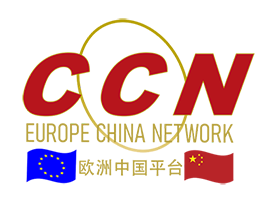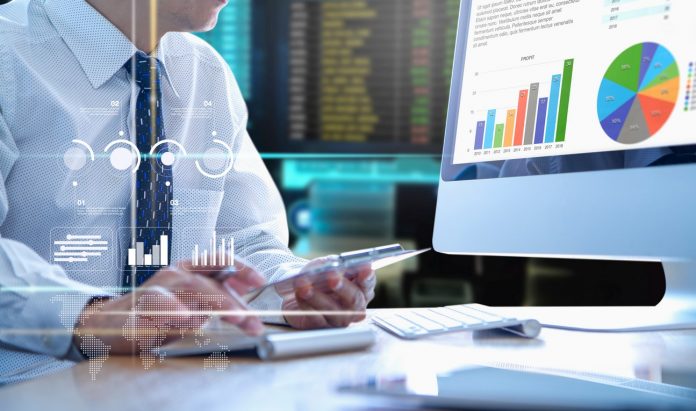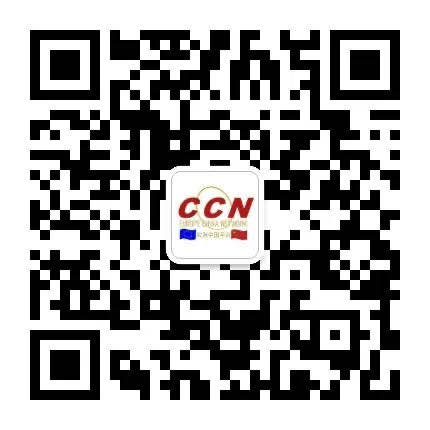How Does the VAT Works in China?
China started to implement VAT in 1984 on 24 specified taxable items. In 1994, corresponding with reform goal of building up socialist market economy system and pursuant to the guideline of “unification of taxation management, equity of tax burden, simplification of tax system, reasonalization of revenue distribution relations and guarantee of the financial revenue”, the former taxation system undertook an overall and structure reform. On December 13, 1993, the State Council of China promulgated “The Provisional Regulation of the People’s Republic of China on Value Added Tax”,which put into effect on January 1, 1994 and is currently effective in China.
VAT is administered by the State Administration of Taxation (the import VAT is collected by the customs on behalf), and the revenue from it is shared between the central government (75%) and local governments (25%). VAT is the major source of fiscal revenue for the Government of China, particularly the central government. In 2002, the revenue from VAT is 814.1 billion yuan, accounting for 47.61% of the state total tax revenue of the year, which is the first biggest tax in China.
- The current VAT system of China
⑴ Taxpayers
According to The Provisional Regulation of P.R.C on VAT, Value-added tax should be paid by enterprises or individuals who sell merchandise, provide processing, repairing, or assembling service, or import goods within the territory of the People’s Republic of China on the added value derived from their production, selling merchandise, providing industrial repairing or assembling service.
⑵ Taxable items and tax rates
Based on different taxable goods, services, different flat rates and zero rate are adopted. The table of the taxable items and rates is as following:
Table of VAT Taxable Items and Rates
Coverage of collection Rate
Exportation of goods(except otherwise stimulated by the state) 0
Agriculture, forestry, products of animal husbandry, aquatic products;
Edible vegetable and grain duplicates;
Tap water, heating, cooling, hot air supplying, hot water, gas, liquefied petroleum gas, natural gas, coal/charcoal products for household use;
Book, newspapers, magazines(excluding the newspapers and magazines distributed by the post department)
Feeds, chemical fertilizers, agricultural chemicals, agricultural machinery and plastic converting film for farming;
Selected metal mineral products, Selected non-metal mineral products, coal.
13%
Crude oil, mine salt and goods other than those listed above;
Taxable services.
17%
⑶Computation of tax payable
There are two kinds of VAT taxpayer in China by the criterion of turnover of sale goods & services and condition of accounting system. One is normal taxpayer, the other is small taxpayer. The standard of decision of Small Taxpayer is ①where the taxpayer is engaged in the production of goods or in the provision of taxable services as his sole or principal business and his annual turnover is less than RMB ¥1,000,000; or ② where the taxpayer is engaged in the wholesale or retail of goods and his annual turnover is less than RMB ¥ 1,800,000. However, A Small taxpayer who maintains a sound accounting system and is able to provide accurate accounting records for taxation purposes may be registered as a General Taxpayer.
A. Normal taxpayer
To compute the VAT payable, the normal taxpayer needs to separately calculate the output tax and the input tax for the current period. Then the difference between the output tax and the input tax shall be the actual amount of VAT payable. The formula for computing the tax payable is:
Tax payable=Output tax payable for the current period-Input tax payable for the current period;
Output tax payable=Sales volume in the current period×Applicable tax rate.
B. Small taxpayer
Small taxpayers are taxed on the basis of the revenue derived from sales of goods or provision of taxable services by applying proper rates(4% for commercial sector, and 6% for other sectors). The computing formula of tax payable is: Tax payable=Sales amount×Applicable rate.
C. Importation
The importation goods are taxed on the basis of the composite assessable price by applying the applicable tax rate. The formula for computing the tax payable is:
Tax payable=Composite assessable price×Applicable VAT rate
Composite assessable price=Customs completion price+Custom Duty
Where the taxpayers import the taxable goods under the Consumption Tax, the Consumption Tax payable shall be included in the composite assessable price.
D. VAT refund for exporters
In case of 0 rate applicable to the exported goods, the exporters may apply to the tax authorities for the input tax refund on those goods exported. At present, the refund rates consist of 3%, 5%, 8%, 13% and 17%.
⑷ Major tax exemptions
The exempted items include: the agricultural production materials as ruled, the self-produced primary agricultural products sold by agricultural producing units and individuals; contraceptive medicines and devices; antique books purchased from the public; instruments and equipment imported for direct use in scientific research, experiment and education; imported materials and equipment granted, gifted by foreign governments or international organizations; materials imported directly to support the poverty relief and charity cause donated freely by overseas natural persons, legal persons and other organizations; articles imported directly by organizations for the disabled for exclusive use by the disabled; and the taxable services provided by individual disabled laborers.
- The main problems of VAT
Broadly speaking, there are three major types of value added taxes in the world corresponding to the gross national product, net national product, and consumption basis. They are the GNP type, income type and the consumption type. In China, the type of VAT is the GNP type. That is to say, the input tax of fixed-assets, such as houses, construction and equipment, can’t be deducted from the output tax when computing the tax payable. The VAT of GNP type ensures that the government can get more tax revenue, but would limit the increase of investment. Thus, this is one problem of China’s VAT that should be settled in the short future.
Secondly, in some industries of China, such as construction, transportation, and services etc, the state doesn’t collect VAT but Business Tax. Business Tax is levied as a percentage of sales, not just value added. In China, Taxable services for Business Tax is include transportation, construction, finance and insurance, post and telecommunications, cultural activities and sports, entertainment businesses and services. It is not equitable and increases the difficulties of computing taxes that different industries are levied on different type of tax.
- The preparative reform for VAT in China
For making an equitable market environment and stimulating the investment, the government of China prepares to make a reform of VAT, which will change the type of China’s VAT from the GNP type to the consumption type. On July 1, 2004, the state selected several north-east provinces as experimental area to implement the VAT of consumption type. In these provinces, the tax payers of VAT in eight selected industries can deduct the input tax of equipment used for production. With the development of Chinese economy and the increase of reform experiences, the central government will implement the VAT reform in all industries and provinces of China. What’s more, for setting up a uniform and equitable turnover tax system, some industries subjected to Business Tax would be levied on VAT at an opportune time.
http://www.china.org.cn/english/LivinginChina/202770.htm
Interim Provisions on Import Taxes on Articles Taken into China by Foreigners Permanently Residing in China
(Adopted by the State Council on January 3, 1999, promulgated by the General Administration of Customs on March 10, 1999, effective as of April 1, 1999)
Article 1:These Provisions reformulated in order to implement opening-up policy, strengthen international exchange and promote the development of foreign trade and economy.
Article 2:For permanent resident offices established by foreign enterprises, news agencies, economic and trade organizations, cultural associations and foreign legal persons upon approval by competent departments of the People’s Republic of China, if their permanent residents such as foreign citizens, overseas Chinese and dwellers form Hong Kong, Macao and Taiwan (including their spouses and minor children living with them) as well as other permanent residents (hereinafter referred to as permanent residents), who have been allowed to enter into China and have lived in China for more than one year, import articles for self use, these Provisions shall be applied. These persons include:
(1) permanent residents in permanent resident offices established in China by foreign enterprises, economic, trade and cultural organizations;
(2) permanent residents in permanent resident offices established in China by foreign non-government organizations of economic, trade and cultural associations;
(3) permanent correspondents of permanent foreign news agencies in China;
(4) permanent foreign residents in Chinese-foreign equity joint ventures, cooperative joint ventures and wholly foreign-funded enterprises in China;
(5) foreign experts (including experts from Hong Kong, Macao and Taiwan) and overseas Chinese experts who have been long working in China;
(6) foreign students and overseas Chinese students who have been long studying in China.
Article 3:Articles for self use such as household pickup camera, camera, portable radio cassette player, portable laser phonograph and portable computer taken into China by the six categories of permanent residents mentioned above who live in China for more than one year (i.e. their work visas or study visas are valid for more than one year) when they enter into China for the first time during the term of validity of their visas are exempted from import taxes, upon the examination and verification by the competent Customs at the places where they are situated, with the limit of only one for each variety; taxes shall be levied according to the provisions on articles exceeding the limit.
Article 4:Teaching and researching articles such as books, materials, instruments for scientific research, tools, samples and reagents taken into China by foreign experts (including experts from Hong Kong, Macao and Taiwan) and overseas Chinese experts conforming to the provisions of Article 2 are exempted from import taxes within the reasonable number for self use.
Article 5:Articles other than those as stipulated in Articles 3 and 4 taken into China by above-mentioned foreigners during the period of living, working and studying in China shall be handled in accordance with the Measures of the Customs of the People’s Republic of China for Supervision and Control over Belongs and Articles Carried by Passengers Entering or Exiting China.
Article 6:Imported duty-free articles prescribed above shall be supervised and controlled by the Customs according to its relevant provisions on duty-free import articles.
Article 7:Articles taken into China by permanent residents (including their spouses and minor children coming with them and residing in China) working for embassies (or consulates) of foreign countries (including regions) in China, special organizations of the United Nations and permanent resident (representative) offices of international organizations shall be handled in accordance with current provisions.
Article 8:If there is any divergence between previous policies and provisions and these Provisions, these Provisions shall prevail.
Article 9:The General Administration of Customs are to formulate implementing rules in accordance with these Provision.
Article 10:These Provision take effect as of April 1, 1999.
http://www.china.org.cn/english/LivinginChina/185206.htm
Basis Knowledge for Paying Tax
Resident taxpayers include individuals with a residence in the Chinese territory or those who do not have a residence in China but have lived in China for a whole year during a taxation year. Resident taxpayers are under unlimited tax obligation, i.e., their income originating from both within and outside the Chinese territory is subject to income tax in China.
How to Pay Personal Income Tax
Once a foreigner assumes his post, he or the employer should register with the competent tax authorities and pay income tax in accordance with China’s tax law.
http://www.china.org.cn/english/LivinginChina/184196.htm
Tax Exemption for Foreigners
According to international conventions, bilateral agreements and the principle of reciprocity, the Chinese Government accords tax exemption to foreign diplomatic personnel except for the following items:
- Dues and taxes that have been normally incorporated in the price of goods or services;
- Levies on the private real estate within the Chinese territory, excluding the premises for diplomatic and consular missions;
- Inheritance-related duties; but if a diplomat dies, his movable property in China is exempted form duties and taxes;
- Foreign diplomats’ income that is not derived from their missions in China.
http://www.china.org.cn/english/LivinginChina/184177.htm
Tax Refund in China
In line with international practice and the principle of mutual benefit and reciprocity, as a foreigner, you can apply for tax refund for all the taxed goods you bought in China, including imported goods. You can bring with you invoices of the goods and apply at the competent departments of the Chinese Government. Goods eligible for tax refund include:
- Tap water, electricity, natural gas, and central heating expenses consumed within the premises and residence of diplomatic missions;
- Building and decoration materials and equipments purchased for premises and residence of diplomatic missions in the Chinese market;
- China-made motor vehicles bought within reasonable scope by officials of diplomatic missions in the Chinese market for private use;
- Equipments of goods bought by diplomatic missions and their staff in the Chinese market for private use within reasonable scope, and each receipt amounts to no less than RMB 2000 yuan in value;
- Taxable maintenance service for private-use motor vehicles owned by diplomatic missions and their staff.
If the goods you have purchased fall within the above categories, you may apply for tax refund at competent authorities of the Chinese Government through the foreign entity you work for in China. To be more specific, the entity you work for should put together all the requests on a quarterly basis, fill out Tax Refund Application Form for Foreign Diplomatic (Consular) Missions in China signed by the person in charge, submit the Form to the Protocol Department, MFA. The latter will put together all the requests and apply for tax refund at Beijing Office of State Taxation Administration of China or Division of Privileges and Immunity of the Protocol Department, MFA.






















